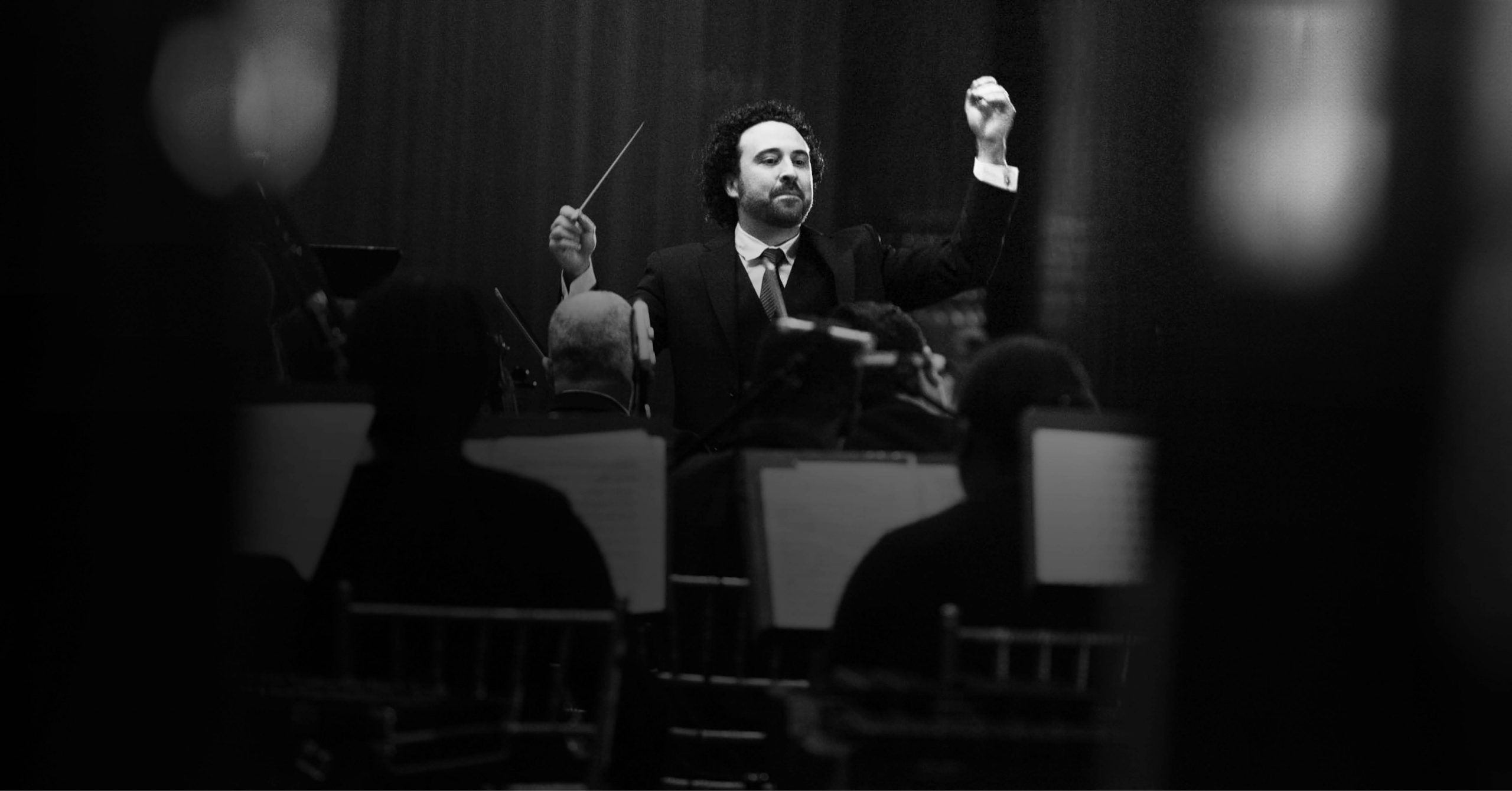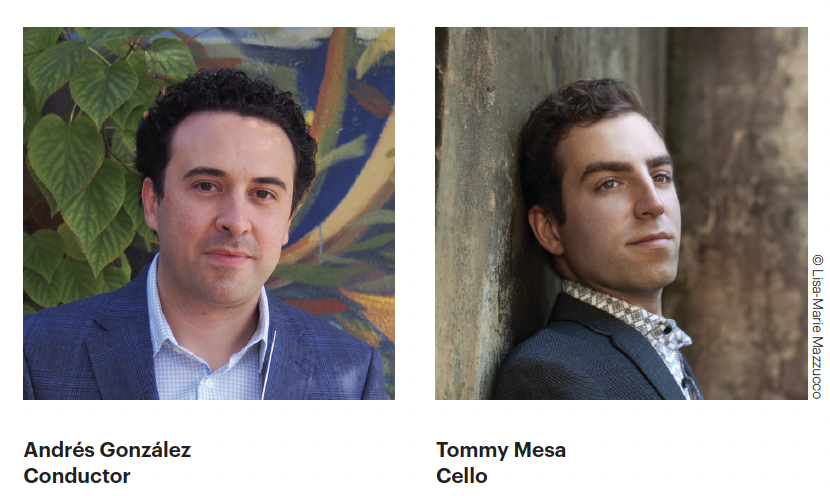By Charlotte Lilley

For conductor Andrés González, music and social justice have always gone hand in hand. Originally from Venezuela, where he received his early training through El Sistema (a program well known for its use of music education as a means of social engagement and development), Andrés is a firm believer in the positive social impact that music can have.
“The music basically touched my life and saved my life, otherwise I wouldn’t be able to do what I’m doing right now,” he explained in an interview. “There is no other way that myself or my parents could pay for the educational training I had. And so I was lucky to be around that program.”
Now an educator himself, these early experiences inform Andrés’ own work, as he recognizes the power of music education to support positive change for individuals and their communities. Whether his students become professional musicians or not, he believes that “they should be able to see the world through the lens of the music, which is different. It’s teamwork, it’s patient, it develops dedication.”
“The ultimate goal is not to create musicians, it’s to improve their lives and improve their skills so they can have a successful life in the future.”
As Andrés supports new generations of up-and-coming music students, he’s also keenly aware of shifts within the broader world of classical music. Pointing to the trends of ensembles leaning towards shorter repertoire and composers creating works which “reflect a little bit of the crisis that the world is living right now,” he noted: “I think there is a new era in classical music.”
Much of this new era is rooted in ideas of sustainability and improved accessibility for diverse audiences. As Andrés explained, “there is some conversation around how the new music could be more sustainable, for the audience [and] for the orchestra — if you have shorter performances [and] we put it together in a streamlined situation, people can feel more involved, more welcome to the halls.”
This February, Andrés will join the Calgary Philharmonic for Montgomery + Mesa, a concert which exemplifies this shift towards sustainability and accessibility. Including performances of works by Iman Habibi, Pyotr Ilyich Tchaikovsky, Antonín Dvořák, and Jessie Montgomery, and featuring cellist Tommy Mesa, the concert invites audiences to consider a question first posed by Montgomery in the program note for her piece Divided: “How do we find beauty among the chaos?”
desire for musicians and audiences alike to respond to current social issues: Habibi’s 2019 composition Jeder Baum spricht (which translates to ‘Every Tree Speaks’) was written as a direct response to the current climate crisis, while Montgomery’s 2022 concerto Divided reflects on wider experiences of social and political unrest.
For Andrés, combining these new compositions with Tchaikovsky’s iconic Variations on a Rococo Theme and Dvořák’s pastoral Symphony No. 8 — each classical staples in their own right — makes sense. As he explained, “the way that I envision every single program is all these new elements should be attached to what classical music has been. Because we cannot just relegate that, because that’s history as well.”
The accessibility of the concert’s program also goes beyond the pieces themselves. “It’s not only touching those very delicate topics that are around the world right now, but I also think it’s showing more diversity in how we pick the repertoire,” Andrés noted. “I mean, we have Tommy [Mesa], whose parents are from Cuba. I’m from Venezuela. Iman [Habibi is] from Iran, and Jessie [Montgomery] is a Black woman composer.”
Through the inclusion of more diverse voices alongside musical reflections on themes like social justice and the climate crisis, Andrés sees opportunities, once again, to bring new audience members into the classical music space: “I think, right now, there [are] very good elements, and excuses, for the new generations to get involved in so many different ways.”
As he looks ahead to engaging those audience members at Montgomery + Mesa, Andrés’ main hope is that they will simply enjoy the performance. “That’s the ultimate goal,” he explained. “I just wish that people can feel my feelings, you know, somehow translate them through the orchestra, and just have fun.”
Andrés González conducts Montgomery + Mesa on 2 February. For tickets, click the button below.
Program Details
“How do we find beauty among the chaos?”, writes Jessie Montgomery about her piece Divided. This concert, conducted by Andrés González, invites you to reflect on this question. Cellist Tommy Mesa is spotlighted in both Divided and Pyotr Ilyich Tchaikovsky’s elegant Rococo variations. Iman Habibi’s Jeder Baum Spricht, which translates to ‘Every Tree Speaks,’ responds to the current climate crisis, while Antonín Dvořák’s Eighth Symphony celebrates the pastoral ideal.
Artists
ANDRÉS GONZÁLEZ conductor
TOMMY MESA cello
CALGARY PHILHARMONIC ORCHESTRA
Repertoire
Iman Habibi Jeder Baum Spricht
Pyotr Ilyich Tchaikovsky Variations on a Rococo Theme
Jessie Montgomery Divided
Antonín Dvořák Symphony No. 8

